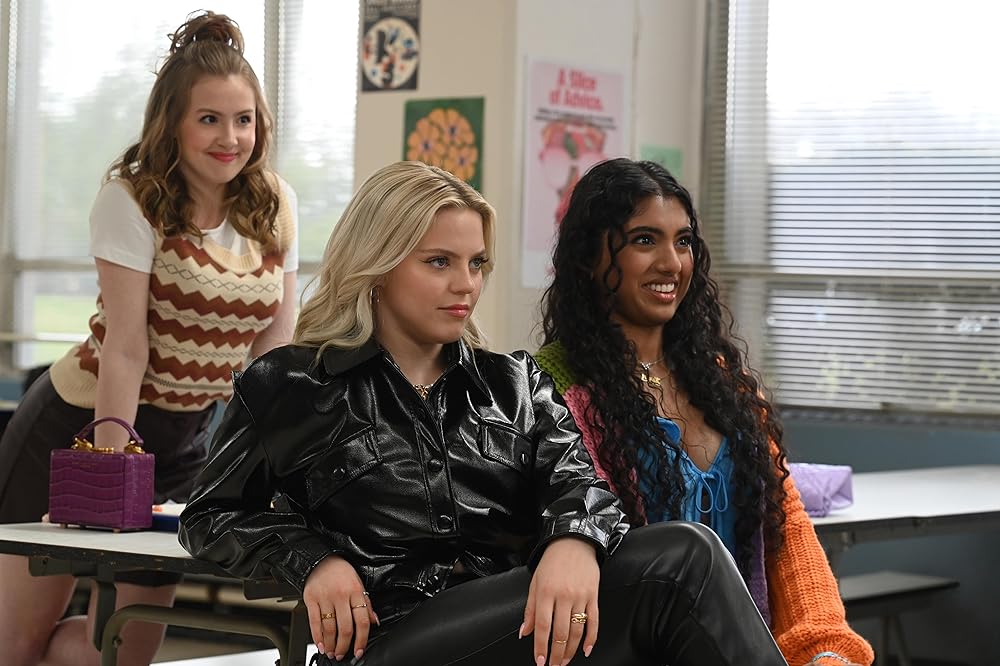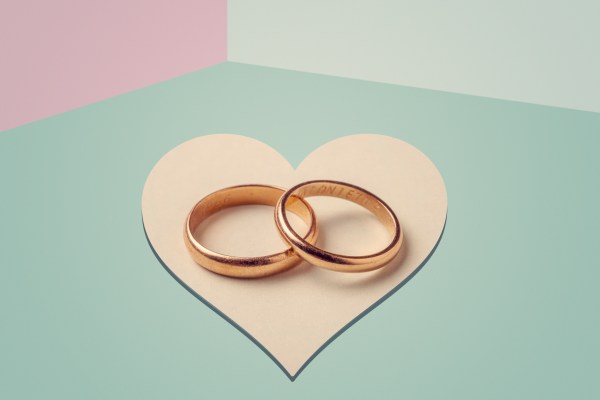The early 2000s introduced audiences to Cady Heron, a formerly homeschooled 16-year-old girl navigating the cliques, crushes, and social faux pas of North Shore High. Based on Rosalind Wiseman’s nonfiction book Queen Bees and Wannabees and written by Tina Fey (who was at the height of her SNL fame at the time), the original Mean Girls weaved humor and insight to deliver an “eminently quotable bildungsroman.”
Just like that 20 years have passed, and a new Mean Girls musical reboot is here, revealing just how much has changed. These two coming-of-age stories, separated by two decades, offer glimpses into two different times in the world of American girlhood.
Some of the adjustments are predictable. The reboot acknowledges the changes brought on by the #MeToo and body positivity movements of the 2010s. The new cast is more diverse, and the new script omits jokes on topics like sexuality and mental health. “It’s come to no one’s surprise that jokes have changed,” commented Fey on her updated screenplay. “You don’t poke in the way that you used to poke.”
The most striking change, however, is the new star of the story.
Where the original 2004 film told the story of the awkward, endearing Cady, this year’s reboot is far more interested in the original’s antagonist, Regina George. The movie’s marketing—from the trailer to the poster to its main promotional interviews—all place Regina (played by Gen Z’s new it-girl, Reneé Rapp) in the forefront. She gets several songs in the reboot, including the expository introduction when she declares, “My name is Regina George / And I am a massive deal.” If Mean Girls then was about the wannabes, Mean Girls now is about the Queen Bee.
While Cady so obviously grapples with her sense of self, Regina presents herself as self-possessed. She’s imposing on those around her, seemingly unfazed by the tumult of high school, confidently charting her own course. Granted, part of charting her own course involves being the meanest of the mean girls.
But apparently she’s more attractive to younger audiences now than the bumbling Cady Heron. Following the reboot’s release, some declared that Regina George has become a “Gen Z hero.” Which raises the question: Why would younger girls today be more drawn to Regina George’s story than the fish-out-of-water story told by Cady?
Since Regina George’s character feels notably more adult, one likely explanation for her appeal is that girls are growing up faster. In terms of their outward appearance at least, younger girls today look and act older than they did back in the early aughts. Teens and tweens are making purchases that were typically expected of girls five to 10 years older than them. According to the journalist and consumer-trends analyst Casey Lewis, some of the most popular gifts—granted, from a wealthier subgroup of young girls—this past holiday season included the now comically viral Stanley tumbler, Dyson hair gadgets (starting price $430) and multistep celebrity-famous skin care products. In fact, Gen Z spends more money on skin care than any other age group, and these changes have even trickled down to the youngest generation, Gen Alpha. Purchases aside, studies now show that more and more girls are hitting puberty earlier, without a clear medical explanation.
Perhaps growing up online has flattened coming-of-age timelines, giving young girls first the pressure, then the tools to look older. Growing up online can incite a need to cultivate a distinct and coherent digital persona. Visually driven platforms like Instagram and TikTok demand a self-presentation that is more decided than deliberative. Dr. Louise Goddard-Crawley, a psychotherapist based in London, recently noted the impact of this technological shift on girlhood. While the early 2000s saw the emergence of a few online worlds like MySpace, “the influence of self-presentation was not as all-encompassing as it is today.” “These visually driven spaces have heightened the importance of curated self-presentation, offering both empowerment and challenges,” she remarked. And by now it’s not a leap to think this pressure for curated self-presentation has spilled over from the online world into the halls of high schools.
In a way, Regina George presents herself as an exemplary, commanding online profile—bold, assertive, self-justifying. But while the movie captures those strengths that are so appealing to a new generation of girls, it doesn’t let Regina’s self-possession eclipse her vices.
Within this framework of a Kardashian-like self-branding and confidence, the new Mean Girls peels back the curtain to reveal a more three-dimensional Regina George. Without giving too much away, her reimagined version is still mean, but now she is mean and more emotionally complex. She’s presented less as a caricature villain and more as a tortured soul with a ballad to sing (“People forget I’m human too.”) That’s part of the new coming-of-age-story Mean Girls tells: one of grappling within the much tighter confines of a public self, pressured to present as self-assured.
Captivating coming-of-age stories reveal a glimpse into different worlds, zeroing in on characters contemplating questions particular to their time and place. The Sandlot immersed us into 1960s West Coast suburbia as seen by a fifth-grade boy. Legally Blonde explored the perceived tension between 2001’s bubbly femininity and a masculine workplace. And Mean Girls, then and now, reveals high schoolers asking perennial coming-of-age questions about a sense of self—but the narrative differences between the two might just point to the growing pressures for young girls to appear more in control.
It was great fun to head back to the theater and watch the Mean Girls reboot with a group of friends. All now on the other side of our adolescent coming-of-age stories, we could reminisce about familiar characters and repeat the lines that we’ve cherished for 20 years. But a subtle sense of loss also settled over the viewing. Yes, it was partly the nostalgia that comes with any early 2000s movie depicting simpler days. But it was also a longing for a time when there was more room for high schoolers to embrace the inherent, inevitable awkwardness of growing up.








Please note that we at The Dispatch hold ourselves, our work, and our commenters to a higher standard than other places on the internet. We welcome comments that foster genuine debate or discussion—including comments critical of us or our work—but responses that include ad hominem attacks on fellow Dispatch members or are intended to stoke fear and anger may be moderated.